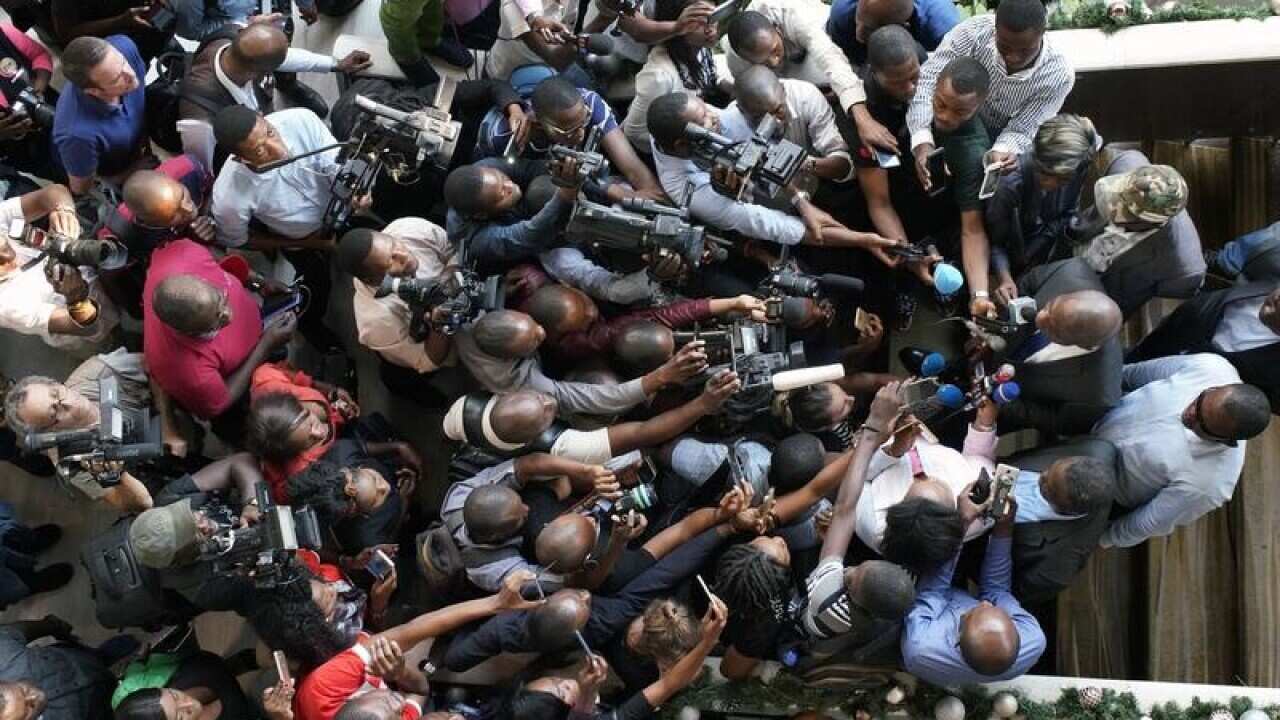Voting in Democratic Republic of Congo's long-anticipated presidential election is off to a rocky start due to torrential rain in the capital, long delays at some polling stations and broken-down machines.
Three opposition strongholds will see no casting of ballots at all after authorities cancelled the vote there, citing health risks from an ongoing Ebola outbreak and ethnic violence.
Elections are a rare event in Congo, which has been plagued by authoritarian rule, assassinations, coups and civil wars since independence from Belgium in 1960.
If President Joseph Kabila, in power since his father's assassination in 2001, steps down after the vote it will be the country's first ever democratic transition.
Kabila voted early in the morning in the capital Kinshasa at the same school as the candidate he is backing, former interior minister Emmanuel Ramazani Shadary, whom the latest opinion polls showed trailing two opposition candidates.
"My only concern is that we have this very heavy rain and probably voter turnout might be low but hopefully the skies will clear and the voters will turn out in numbers," Kabila told reporters.
The Catholic bishops conference said voting had not started on time at one-fifth of stations across the country where it had deployed observers. A similar number were installed in "prohibited places" like military and police posts.
In the eastern city of Goma, where the weather was clear, witness saw residents casting votes but another polling station in the city was still closed 90 minutes after polls opened.
"Some (voters) do not even know how to use the voting machine," said Kayembe Mvita Dido, who was waiting in line in the shadows of the towering Nyiragongo volcano.
He was referring to the new electronic voting system, criticised by the opposition as vulnerable to fraud.
Several machines broke down in Kinshasa, Goma and Bukavu, bringing voting in some places to a halt, witnesses said.
Some voters complained they could not find their names on the rolls, and flooded streets in Kinshasa prevented others from reaching their polling stations.
"We have some issues and we are handling them all," electoral commission spokesman Jean-Pierre Kalamba said on state television.
"When a problem arises ... the solution won't be perfect ... We're choosing the lesser evil."
Share

